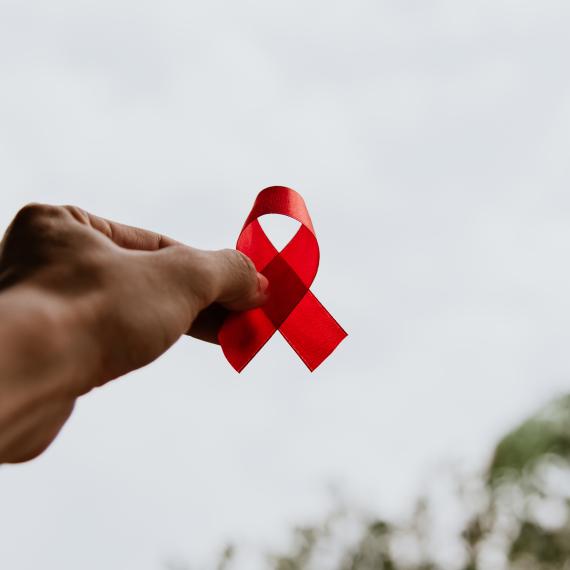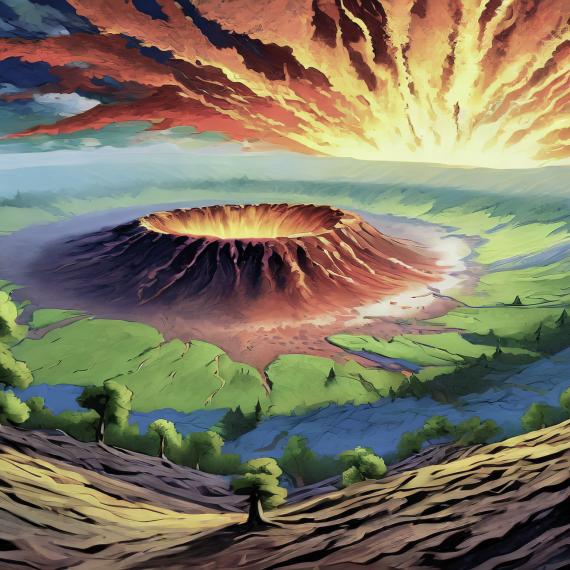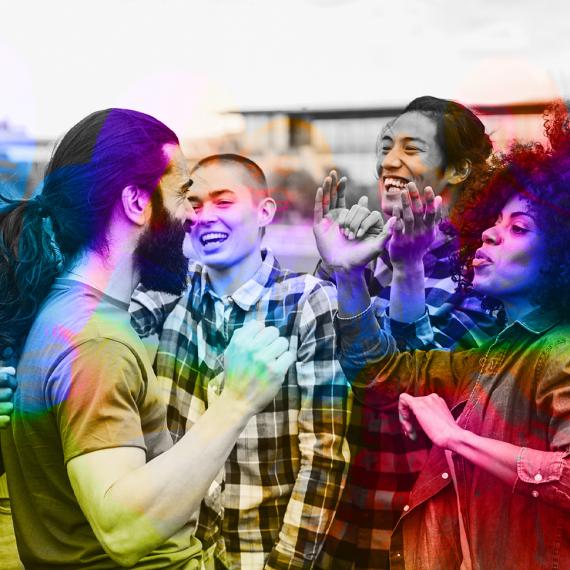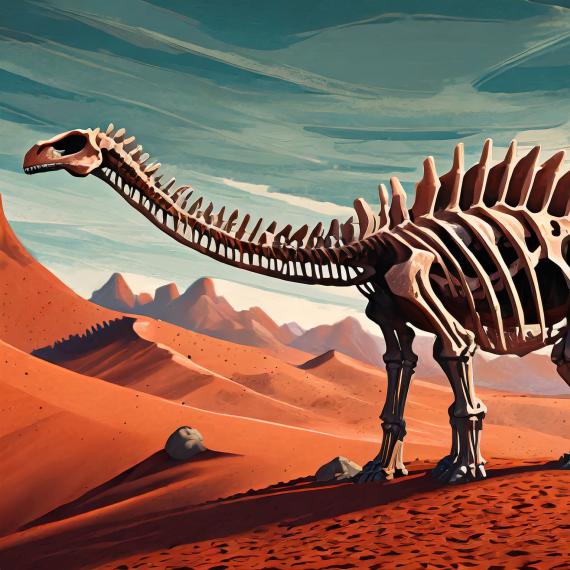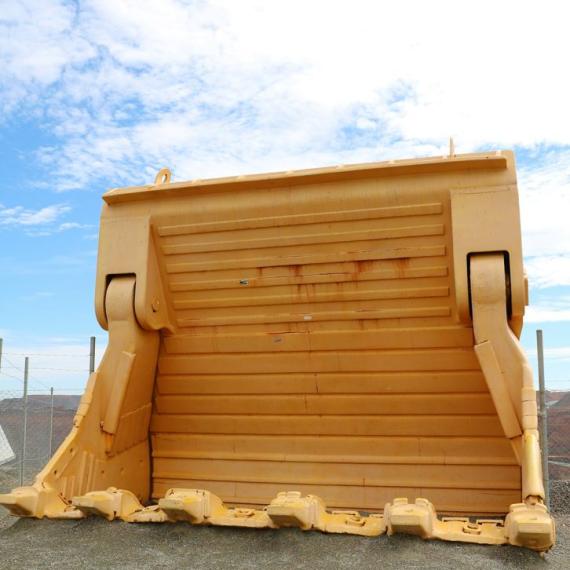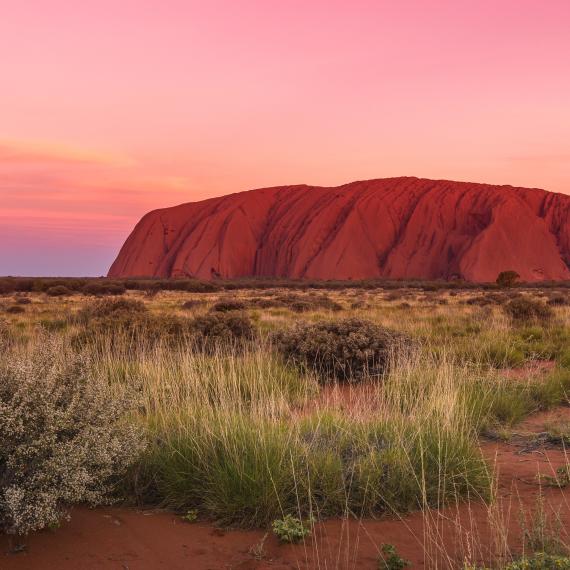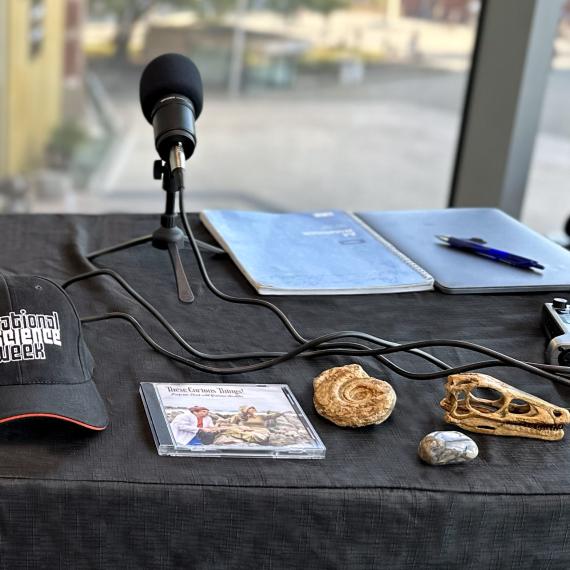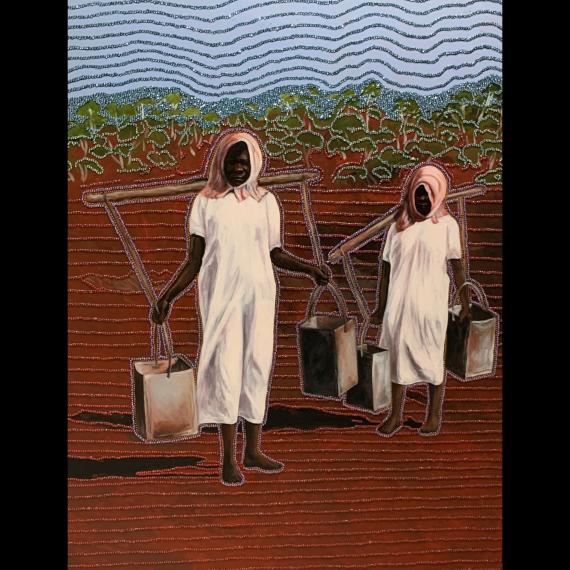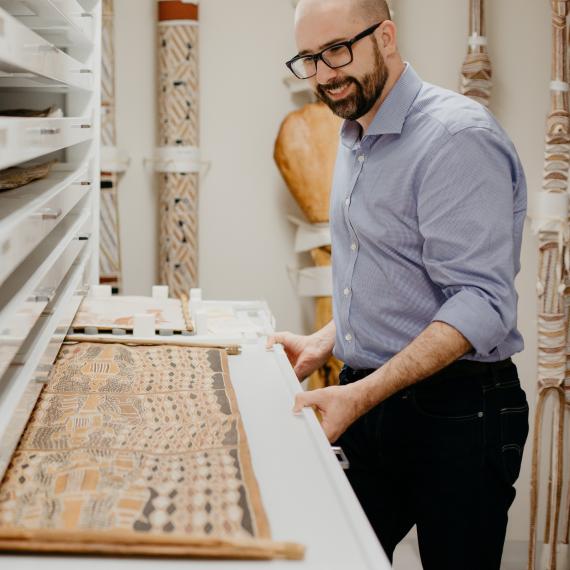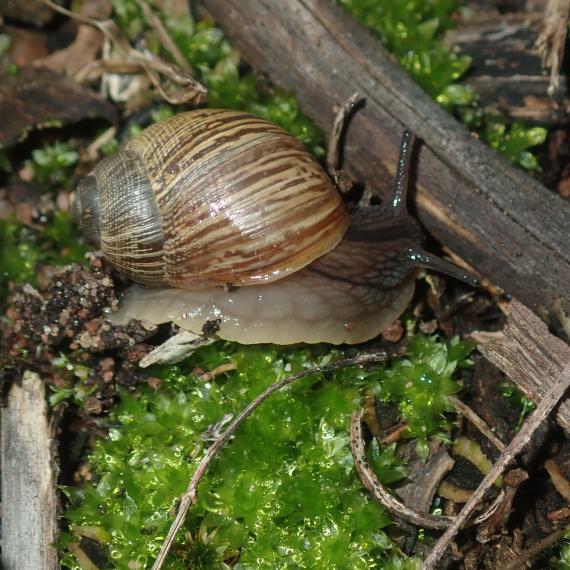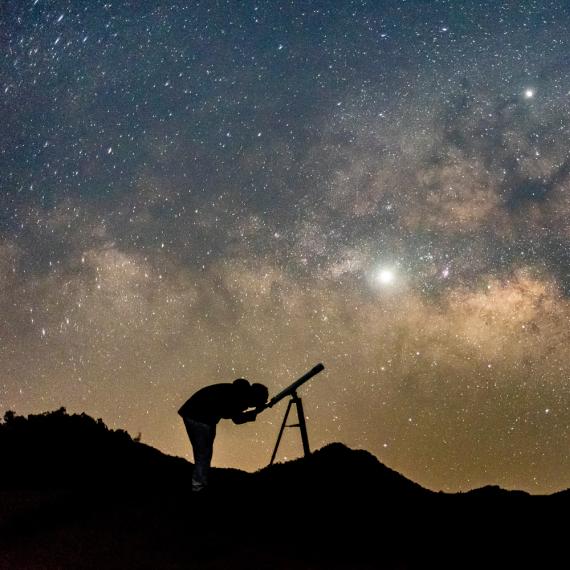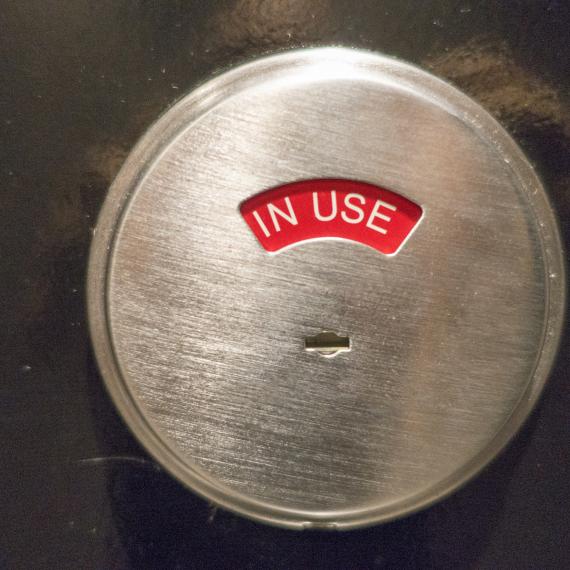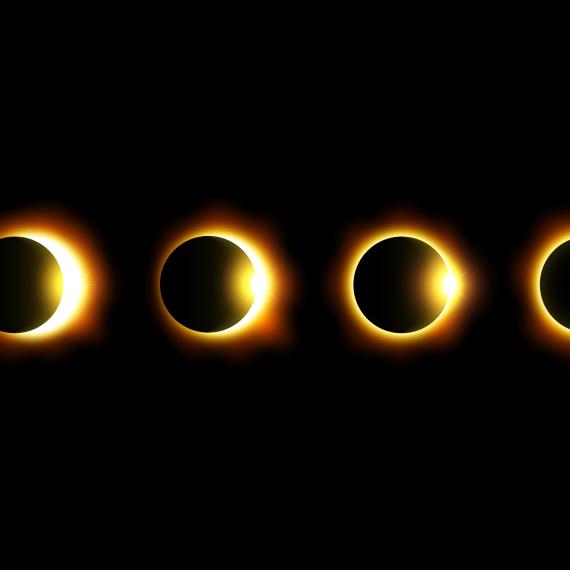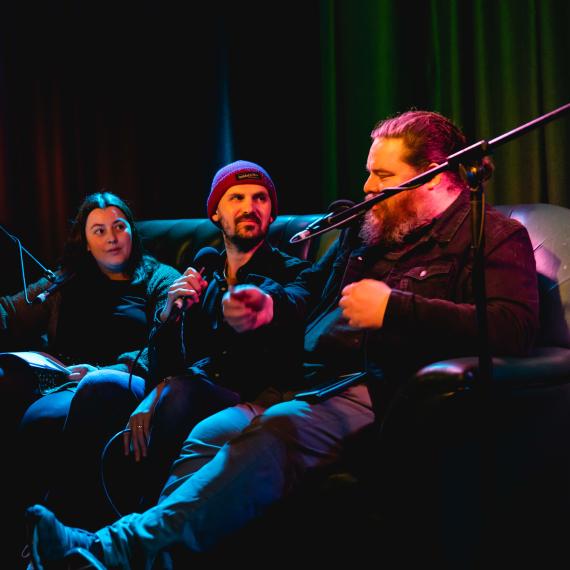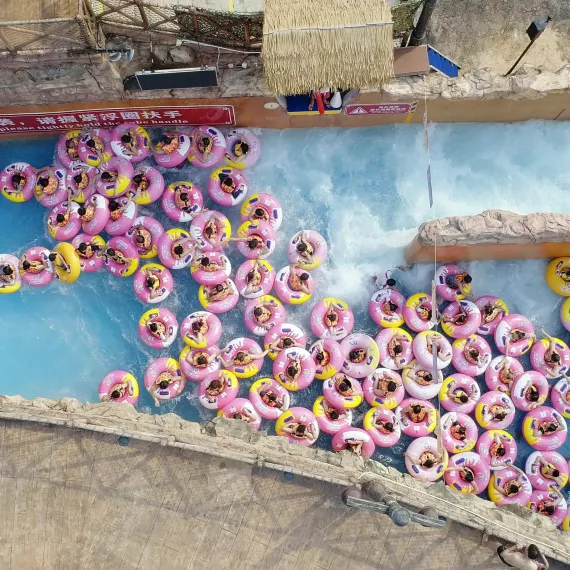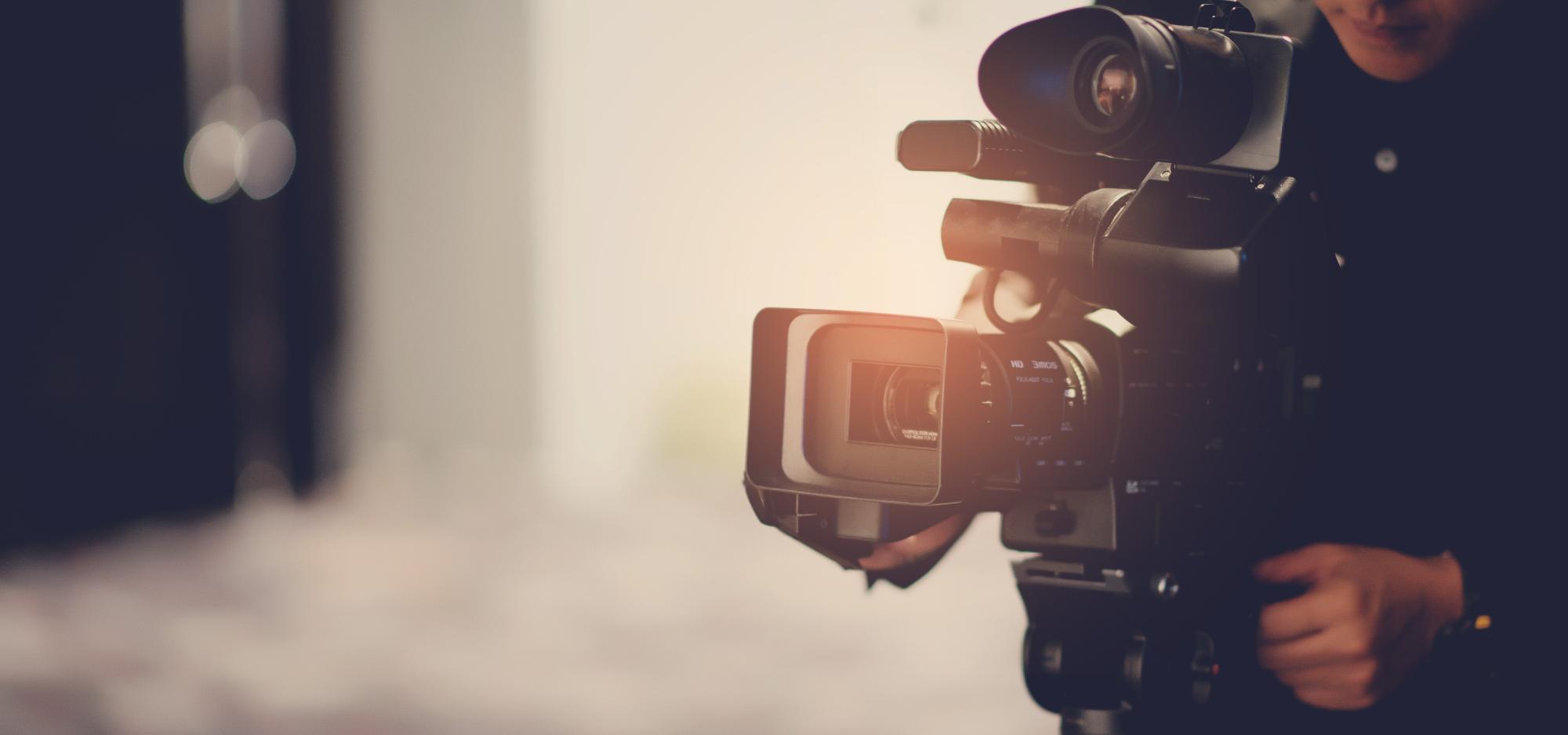
In Conversation: Aboriginal representation in Australian film and TV
Delve into the way Aboriginal industry professionals are shifting representations, decolonising the media space and creating visibility for Aboriginal people in the industry.
Media representations of Aboriginal identity have been influenced by the dominant discourse of the colonial Australian narrative, sociocultural factors, and prevailing racial attitudes. Explore what it takes to be creative behind popular contemporary works of media, harnessing authenticity and irreverence as tools to tackle weighty societal issues.
Join us In Conversations with Aboriginal writers and filmmakers as they discuss their experience working as writers, filmmakers and creatives across various media genres.
Meet our Facilitator
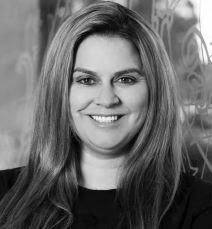
Karla Hart is a multi-award-winning artist, filmmaker, actor, musician, performer, speaker and teacher who is as passionate about sharing her Noongar culture as she is about shining a light on other First Nations creatives. A proud Noongar woman, Karla was raised on Goreng country in WA’s Great Southern, surrounded by her large extended family and with deep cultural knowledge. Her connection to her county and culture has inspired every aspect of her work. Karla has not only established herself as a leader in many aspects of the arts, she is committed to self-determination n the telling and sharing of First Nations stories.
Meet our speakers
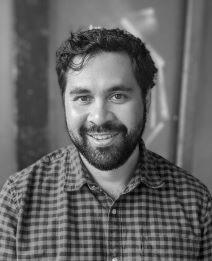
Bjorn Stewart is a Sydney-based filmmaker and creator. Most notably he directed the AACTA award winning mini-series All My Friends Are Racist, which had its international premiere at Series Mania. Wrote and directed schlock horror comedy Killer Native and directed Last Drinks at Frida’s, both premiering at the Sydney Film Festival and screened at festivals across the globe since. In 2021 Bjorn was mentored by and shadowed Taika Waititi on Marvel’s Thor: Love and Thunder. In front of the camera, Bjorn was one of the leading stars on Black Comedy and a part of the core ensemble for Nice Shorts. He also performed and wrote for the ABC’s At Home Alone Together, Get Krack!n, and the controversial daily news series Tonightly with Tom Ballard. Bjorn has performed with Skit Box and their series Wham Bam Thank You Mam and Drunk History Australia.
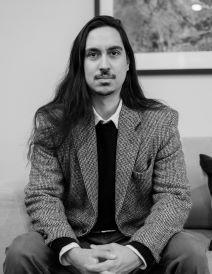
Perun Bonser is a Ngarluma filmmaker with a background in contemporary dance. As an accomplished writer and director with over a decade of experience, Perun is passionate about telling authentic stories that challenge audiences and empower First Nations communities. In 2021, Perun Directed and Co-wrote Our Law - Season 1 (NITV/SBS) which is currently streaming on SBS On Demand. He is currently the Series Director, Story Producer and Co-Writer of Our Law - Season 2 (NITV/SBS). Perun also directed Prospero Productions' immersive dome film Star Dreaming (Screening at the Maritime museum in Fremantle), and written and directed several short films including horror anthology Dark Place - The Shore (ABC), Blight (ABC), Fighter (NITV), and Shadows of Displacement (NITV). His films have screened at a multitude of film festivals, including CinefestOz, Hot Docs, imagineNATIVE, St Tropez International Film Festival, Sydney Film Festival, and Melbourne International Film Festival to name a few.
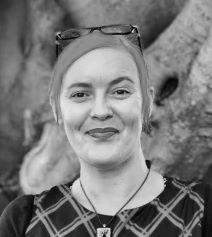
Writer and Producer Taryne (PiNKY) Laffar descends from the Bardi and Jabbir Jabbir nations of the West Kimberley, and has a Filipino and European background. Her screen and writing/directing debut was the short documentary; Who Paintin’ Dis Wandjina? Subsequent film work was in casting, including; The Circuit, Stone Bros, Bran Nue Dae, Mad Bastards, Yagan, Jandamarra’s War, A Few Less Men, and Go, all creating important connections over in Western Australia. Taryne’s company PiNK PEPPER, has produced Bingo!, Rainforest Warriorz, On Country Kitchen Season 1, numerous Our Stories for NITV, KGB (ABC iView) and Our Law (Netflix, SBS OnDemand), Lustration VR (META) and Our Law series 1 and 2 for NITV.
About In Conversation
A safe house for difficult discussions. In Conversation presents passionate and thought-provoking public dialogues that tackle big issues and difficult questions featuring diverse perspectives and experiences. Panelists invited to speak at In Conversation represent their own unique thoughts, opinions and experiences.
Held monthly at the WA Museum Boola Bardip, in 2023 In Conversation will take different forms such as facilitated panel discussions, deep dive Q&As, performance lectures, screenings and more, covering a broad range of topics and ideas. For these monthly events, the Museum collaborates with a dynamic variety of presenting partners, co-curators and speakers, with additional special events featuring throughout the year. Join us as we explore big concepts of challenging and contended natures, led by some of WA’s most brilliant minds.
Listen to previous conversations now.
-
Episode transcript
Introduction: Welcome to In Conversation, a series brought to you by the Western Australian Museum Boola Bardip. In conversation is a safe house for difficult conversations and passionate and thought provoking public dialogs that tackle big issues and difficult questions, led by some of was most brilliant minds. In Conversation is recorded on Whadjuk Nyoongar Boodja. The Western Australian Museum acknowledges and respects the traditional owners of their ancestral lands, waters and skies.
Ciaran McDonald: We have a really exciting panel tonight and I'm really grateful that you all can join us, including Bjorn is on the -- on zoom. I'll let Karla, who's facilitating, introduce everyone on the panel. But first, I'd just like to introduce Karla. She's a very prolific person in film, television and theatre and culture, in the arts and in WA. And um introducing her to the to the panellists tonight via email did feel a little bit redundant because everyone knows Karla. Karla is a multi-award winning artist, filmmaker, actor, performer, speaker and teacher. She's written, produced and directed over 130 episodes of television and has spent the last three years producing Yokayi Footy over in Melbourne and is going to start making drama and Karla I'll hand it over to you.
Karla Hart: Thank you. And um thank you to you guys for coming out tonight on this miserable Perth weather at the moment. It's so funny. I've been emceeing a big conference and everyone's like, wheres the weather gone? And we're like, Must be all those Canberra mob that’ve come over here for the summit and bought it with them. <laughs>. And if anyone's ever late, I say, you know, in Perth we say if it's raining, cancel the barbecue that's it. Can’t go out of the house. Anyway, I would like to introduce some very deadly people in the film industry. And we'll start with brother. To my right, it's Bjorn Stuart. He's a Sydney based filmmaker and creator. Most notably, he directed the actor award winning miniseries All My Friends Are Racist, which had its international premiere at series Mania. He wrote and directed shock horror comedy Killer Native, and directed Last Drinks at Frida's both premiering at the Sydney Film Festival and screened at festivals around the globe. In 2021, Bjorn was mentored and shadowed by -- I need to get this right -- Is it Taika Waititi?
Unknown: Yeah
Karla Hart: Moorditj, on Marvel's Thor, Love and Thunder. In front of the camera. Bjorn was one of the leading stars on “Black comedy” and a part of the cool ensemble for Nice Shorts. He also performed and wrote for the ABC’s At Home Alone Together, Get Crack!n and the controversial daily news series Tonightly with Tom Ballard. Bjorn has performed with Skit Box and the series Wham, Bam, Thank you, Ma'am, And Drunk History Australia. So welcome, Bjorn.
Bjorn Stewart: Hey thank you
Audience Member: And KGB?
Karla Hart: And KGB Right? Yes. How could I forget that. I use those memes all the time, by the way.
<laughs>
All right. And I'll go to Taryne since She's next to me. My sister from another mister Taryne, also better known as PiNKY. She's a writer and producer. She descends from the Bardi and Jabir Jabir nations of the West Kimberley. And she has Filipino and European background, which she's proud of. Her screen and writing directing debut was a short documentary, Who Paint’n This One Gina? And also so much other work, including The Circuit, Stoned Bros, Bran Nue Dae, Mad Bastards, Yagan, Jandamarra’s War, A Few Less Men and Go! all creating important connections all over Australia. Her company, PiNK PEPPER, has produced Bingo, Rainforest Warriors, On Country Kitchen series one, Our Stories for NITV, KGB, Our Law, Lustrastion VR and also Our Law series one and two. And I think PiNKY’s been around forever and is one of my inspiration. So I'm really happy that she's here with me. And I also started out with Perun and I think we did the same initiative when we started right?
Perun Bonser: Yes.
Karla Hart: Yes. So we come up together. Perun is a Ngarluma filmmaker with a background in contemporary dance. Beautiful dance. I used to dance for Bangarra. He's an accomplished writer and director with over a decade of experience. He's passionate about telling authentic stories that challenge audiences and empower our mob. And he directed and co-wrote Our Law with PiNKY working on Our Law, and it's currently streaming on SBS on demand, if you want to see it. He's currently series director, story producer and co-writer of Our Law series two, which was done. And he also directed Prospero Productions. Immersive dome film Star Dreaming. And he's done a lot of short films as well. And – that have done, you know, international film festivals and interstate film festivals. And we're really lucky to have Perun here. So yes, welcome everybody. Um, I think the-- where we will start -- now, we blackfellas so we could go from here, there everywhere and around back again. So there's never a great sort of narrative that structured, so be warned. But I think I should start with what —a-- B-szorn. Oh, Bjorn. Sorry, I've got a cousin whose B-szorn, so I'm going to get a I'm not going to say that again. Bjorn, I want to start with you. What are some of the things that are important to you as a blackfella when committing to any film projects, whether it be writing, directing or producing?
Bjorn Stewart: I think it's making sure that the story that you're telling is authentic, for one, and doing the community proud and if you're representing community or if you're just showing Melbourne screen, it's still making sure that that voice is authentic from the beginning of production, like even before pre-production is in the scripts, is making sure that-- that is correct all the way through and getting making sure that it's -- you know, that it's for our mob of as well like that it's, you know, showing, putting it out there for them and that they can see themselves on the screen when we you know when we make these stories.
Karla Hart: Yes. And I should actually add that we will do questions at the end of this sessions so you can ask us whatever you want. So equally Bjorn when you know you have quite an impressive CV, you know, you get a lot of offers. So what are some of the things that turn you off when people offer you things?
Bjorn Stewart: Turn me off?
Karla Hart: Yeah, like contracts or jobs. That my rub you the wrong way.
Bjorn Stewart: Yeah. I'm usually like you can tell I think pretty you know if it's a script that you kind of reading and you can kind of get a feeling that maybe there hasn't been consultation behind it with community or if there wasn't any black writers in the room with it, there's a, there's a voice that kind of comes through that I think that we all kind of, you know, when we read scripts and we see stories that have that are embedded in like the Australian psyche, of um, you know, I guess problematic writing for black fellas and you kind of pick through that there’s, you know, um, if it just doesn't have enough substance behind it, if the, if the characters aren't-- again, back to being authentic with it, I just yeah, that rubs me the wrong way And, um, you know, sometimes, you know, there’s stuff I've read stuff like I couldn't even finish that, that was just like romanticizing and tokenizing our people. And I, yeah, just completely switched off and I was like, I've got no interest in being a part of that story.
Karla Hart: Yes. Agreed. Now, I’ll go to you, PiNKY, because you're closest to me. But you've been involved in the film industry for a very long time now and seen a lot of us come up as well. And being a mentor and a guide and put so much mob into movies. Full stop. on the screen. What are some of the things that you've seen change over the years that you that maybe surprised you or that you thought you might not have seen with Mob?
Taryne Laffar: Oh, okay. Well, I'm not sure about surprise, but it's good to see the some of the pro the progression in regards to authorship and blackfellas telling stories because I firmly believe that's one thing we don't really need help doing and we don't really need people doing it for us with that, especially if it's written with a, you know, an indigenous point of view. It's just doesn't make it doesn't equate for me. But the things that are exciting, obviously the advent of a station with an TV ten years ten years ago, which was huge, the idea that there was enough support to, you know, to to, to have our own station and that in itself created opportunities to grow the industry sort of separate to what our state agencies can do. So it's exciting to see the number of people who've been given opportunities and who are, you know, working filmmakers to this day, you know, and growing and with leaps and bounds, but, um okay, surprising, um, it's overdue, But, um, Jabir’s feature film, Sweet as
Karla Hart: <interjects> It’s in cinemas right now
Taryne Laffar: and Jonty, I call her Jonty because she's my aunty. But yes, things like that, seeing the representation, seeing the opportunities and knowing that it's growing so we can encourage other people, young people, to get into the industry and know that there's work at the end, you know. So that's, that's exciting. Yeah.
Karla Hart: Um, Perun actually, this is kind of to you and PiNKY, but you can at first you both worked on Our Law, which is an incredible series that was picked up for another series and potentially will go another and you follow different Indigenous police officers around the country and the change that they're making through their personalities and their strengths and their experience in those communities. How is it <pause> in your creative space, and, and the way that you direct something like that? Perun, what's the pressure like, to tell, like, a realistic story given we continue to have incredible deaths in custody, we're racially profiled by police. We are one of the highest incarcerated people in the world. Does that how does that play on your shoulders as a director?
Perun Bonser: Yeah. Yeah. Look, there's like an incredible pressure to tell, just to tell, this, every kind of facet of this story. You know, it's a huge story, um, the relationship between -- So Our Law, it's six by thirty, so it’s six half hour episodes, it's commissioned by NITV. Everyone can watch it on SBS on demand. So have a go, it's very very good. Just don't take my word for it you know? So it, Our Law is about the relationship between the police and, um, indigenous police officers and the Indigenous community, um, And so we followed what was it like three cadets and three sworn police officers, all, all of them indigenous. And, you know, they, they joined the police service for very, very level reasons. You know, they, they wanted Aboriginal people to feel comfortable going to the police when they want help. And it's just such a -- it's something I think I myself included, that, you know, we all take for granted. You know, if something goes wrong in our lives, we just dial triple 0, problem solved. For a lot of Aboriginal people, that is not the case at all. And it's not the case because, um, they've had horrible experiences with the police in the past. If not them, then someone they've known who have had significantly worse experiences with the police in the past. Um. So you have to tell this huge story. Um. Well, I had to tell this huge story from the perspective of all the police officers, from the perspective of the people who were, um, you know, responsible for a lot of the pain and trauma caused to indigenous communities. Um. So, yeah, I mean, the pressure to not tell a story that typecast Indigenous communities, the stereotype Indigenous communities that. Um. portrayed Indigenous communities as criminals was like almost impossible. Almost impossible, because by following these cops and, you know, they only come into contact with people when they're breaking the law. Um. So yeah, it was extremely difficult. Um. Is the next question going to be how did you achieve the impossible?
Karla Hart: <laughs>, then inaudible speech>
Perun Bonser: Great. Yeah, excellent. At the time, uh, at the time when we first started production, we first started shooting. We didn't really see a problem until we all of these rushes started coming in and it was just like hours of like police arresting Aboriginal people. Um And. it dawned on us pretty early that we just if we…
Taryne Laffar: <interjects> But having said that, though, I have to say as one of the producers, that that was never, the focus was never on that side of the fence or that side of the of the rela.. of what was happening.
The focus from our point of view was very much to observe the blackfella, police officers and cadets to see how they did business. And and really what it shows you is that there's a different approach. It's a different understanding both for the historic but also the contemporary issues that are cultural. Um. and political, social as well. So it's about navigating that, I'd say, you know, and that's a tricky thing because you've got, you know, you've got to get these things approved by the police department. So how much truth telling can you do? We'll get-- we'll get a bit more, Perun’s in post for series two.
Perun Bonser: <attempts to interject>
Taryne Laffar: And we’re, we’re WA? Queensland, New South Wales and Victoria and the ages of the police officers are older, so things change a bit because people's experiences are more. um. What? Not that these young mob is not having gone through hard things, but their life experience and what they're saying talks to a bigger picture. Yeah?
Perun Bonser: yeah. So obviously the subject matter has several cans of worms. I'm opening up one and Taryne’s, opening up another, but um yeah -- sorry. What was it talking about? Oh, so yeah, so we just had like a lot of material, a lot of rushes of Aboriginal people getting arrested and we thought we can't. That's not telling this whole story. This isn't telling what we've experienced as Aboriginal people, that's not telling the history of the relationship between the police and Aboriginal people. So what we did was we started interviewing people from the community, which seems like a pretty obvious thing to do at the time. Talking to you now, one year later. But at the time yeah, it was, yeah, we just thought, how the hell do we resolve this? How do we tell the side of the side of the story? So yeah, we went to, um, just the community, the indigenous communities where these police officers were embedded, and we just started talking to people. You know, we just set up a studio in a hotel room. We started interviewing people and just ask them really simple questions like, What do you think about the relationship between blackfellas and the police? And what do you think about Aboriginal police officers and all that? And we managed. Um. to tell this really broad rich story that address like a lot of different facets of this, this huge, huge issue.
Taryne Laffar: and different regions, different histories and different, you know, some places we were like for series one, we were in Roebourne. Um. Kalgoorlie, Geraldton, Kununurra and where um.. oh, here Perth.
Perun Bonser: <interjects> Waroona
Taryne Laffar: And you know, so obviously I mean I'm assuming you guys are aware of sort of some of the news and that has gone on over the last number of years. But there was a young fella killed, a young boy killed by a local person in Kalgoorlie, So that's that sits in the hearts and minds of people. And it's yesterday, it's, it was moments ago. So we do include, we do talk about that contemporary stuff and then whereas with Roebourne it's not that there aren't issues happening in a contemporary sense, but the beginning of sort of our protest against deaths in custody, it begins, um, or not begins, but it's John Pat rest in peace. And his death really signifies the beginning of our blackfellas coming together and fighting against what happened there. So and with our young girl, a cadet in Roebourne, her mother, rest in peace, mummy to, um.. her… she was friends so the mother was best friends with that boy was killed. So it's not it might not be your generation but it's as you said, it's close by, whether it's your mummy or granny's generation, it's the legacy sits there. that trauma.
Perun Bonser: Yeah. And you know what's coming, coming into the projects. Yeah. I grew up in Broome and you know we, you know, me, all my friends, cousins, you know, we're all afraid of the police growing up. So it was really, really hard, um, you know, coming into this project because I was quite cynical and quite sceptical of the story that we were going to tell, you know, because I've got pretty fresh memories of getting pulled over by the police for nothing and being, you know, patted down and thrown in the back of a paddy wagon and all that, you know. So, you know, it's not fun. Um, So, you know, having someone approached me and said, “hey, Perun, you want to direct this show?”
Unknown: <laughter>
Perun Bonser: I'm like, all right, I know. Exactly. Yeah, I was thinking nah, fuck that, but that but then I thought, you know what? I'm, I’m going to direct this and I'm going to, like, tell my story, my experience.
Karla Hart: And, Um, that raises something for me as well. Just while we’re talking about this is that, you know, often when we're telling stories about our people and we work nationally and often people say Aboriginal people, but technically I'm Noongar and actually I'm Noongar, but I'm also a Garang Menang and a Wilman. That's my people and my country name and so forth, so forth, so forth. But there's often zero degrees of separation when we're working on things that involve sensitive things, issues within our community, like when Cassius Turvey was killed, rest in peace. Well, he's not going to rest in peace, sadly. I hope he is. But he was a student of mine for two years and I've known his mum. I worked with her for three and a half years and I've been to their house for barbecues. And when that happened, myself and another filmmaker, Fern, said, We have to start filming. So we didn't have funding for it and we just started following everything that was going on and throwing ourselves into that. And I had to stand behind the camera and talk to people that I know from my community and the whole community are crying and hurt and saying, How can this happen? Why did this happen? And they're crying and I'm crying, too. And, you know, that's some of the the lives that we carry because we're such close communities, you know, like even within our bloodlines on my side, that's my country. Or that doesn't mean it's not your country. But here on my mum's side, I have like 84, like my mum's got 84 first cousins on one side of the family. So I one like this whole town's just about related to every Aboriginal person in that town and you know, I run into them everywhere I go. My family, you know, that sort of stuff. So wherever we go we carry that family and cultural and kinship obligation with things that we do as well. That gets quite heavy for us. Um. But yeah, lets talk about something else Now,
Perun Bonser: Yeah, that’s true.
Taryne Laffar: <inaudible comment>
Karla Hart: This is what – Hey? and I'm going to go. I'm going to go, I'm going to chat, I'm going to switch gears and go over to Bjorn and ask you, you know, with comedy and drama, what are some of the things that you could maybe push be further with bold statements and being unapologetically black or unapologetically angry about some racist stuff that happens to us on the daily that we kind of had to put up with, um, what what are those things that like, can you push it more with comedy, do you feel?
Bjorn Stewart: Yeah, definitely. You can push it as far as you want. Um. When. In terms of comedy pushing that line, especially like, if you've been, you know, you know you've been pushed, you know, when you've been the one that's been pushed down by. Um. Society. um for sure, you can like really kind of push that that limit with it. When we did, you know, on All My Friends Are Racist when we. Um. you know, working on that. Um. you know having kind of, there was stuff in it that we had to cut, with it just because it was just, um, I think, I think there's just a lot of, um, you know, I think you can live in your own space and on your own kind of content. But when you're working with, you know, you know, there's a whole faction of teams, you know, there's a whole like line of people, you know, above you that are kind of, you know, working with that stuff. And it's kind of, you know, you know, kind of compromising and balancing. You know, what's kind of you can say and we go way away with a lot, saying quite a lot on it. And and purposely problematic things, purposely, you know, stirring the pot and aggravating and kind of just wanting to show these characters that they were, you know, three dimensional and they had, you know, views that you may not agree with and push the that envelope and try to get, you know, it's, it's tongue in cheek and try to get reactions from people. And yeah, I think, yeah, you can always go in that direction. For me, um I've always, um, wanted to kind of show, um, I guess, you know, there's a Murray kind of, like I'm Murray and you know, there is a Murray sensibility of yeah, there's a daggy ness and a dryness that, you know, and poking fun at yourself, um, with that humour. And I've always tried to kind of like, um, you know, embrace that humour. It's like, well, my dad, my dad, my uncles kind of mucked around when we were growing up and stuff. And I've taken that on and found, um, related to that, you know, quite a lot with that, with it, just kind of like honouring my community and like kind of like just the way that we carry on up the far north. Queensland.
Karla Hart: and like how do you cope with-- because there are a lot of things that we we do and then we go, Oh no, we can't go that far, We can't talk about certain things, we won't talk about, and we won't have them in our films because we're, we're crossing cultural boundaries within our people. There's a lot of things that you never know about us because we, we won't put it on film. But for example, this is not about scary stuff, which is, you know, real deep cultural stuff. But for example, I wanted to ask you about like things like, like a welcome to country on black comedy and cultural dance or whatever it may be that you might pull the piss out of on black comedy. But then our own people will say, Oh no, I like shouldn't be doing that because we already got whitefellas laughing at us and being disrespectful about Welcome to Country. Why are we doing it? Like, how do you how do you cope with that and deal with that sort of things when you're doing, you know, comedy things, What are your boundaries?
Bjorn Stewart: Um, My boundaries? Uh, well, I can't remember that sketch. I don't know if I was even on that.
Perun Bonser: <interjects> it was good sketch.
Karla Hart: No claiming, no claiming on it, Balese Balese. No, but like, as an example, you know, like on some things that our people do get sensitive about, and it might not even be that. It could be something else, or an elder, you know?
Bjorn Stewart: So, you know, yeah, I think one rule that I kind of live by is, you know, that was told me when I was very young is, you know, don't don't fight in front of white people.
Unknown: <laughter>
Bjorn Stewart: You know, it never kind of <inaudible>, you know and so I would never publicly drag down, um, anyone. You can make fun of people, um you know, and tease them. But, you know, having a go at people, even people that you disagree with or whatever like that or have beef with, um, that's not, um, something that helps, um you know, our what we try to you know, what we're here for, what we're trying to do, you know, um, And yeah, there's, you know, things that I guess boundaries that are probably -- I mean it's I look at things and go like, you know, what can I poke fun of and what's kind of like, you know, poking fun or teasing, you know, things that we may do. And and but it was always teasing and poking fun at from a place of love. And and I think that's the difference if it's with malice, then, you know, that's not what I'm interested in. It's always to, you know, bring us on board and see ourselves and and laugh along.
Perun Bonser: I love that sketch that Karla referred to. It was excellent.
Karla Hart: I didn’t say I didn't like it just the elders. And they were like, Oh, why are they doing that? They are already laughing at us and making fun of us.
Perun Bonser: But I think it's, you know, it's it was for a black audience, you know, like you can you know, you play that sketch to a roomful of I don't know blackfellas or something I think, you know,
Karla Hart: These were black elders.
Perun Bonser: Yeah, well, I get why but but that's that's like a good question. You know, like maybe maybe talk to your elders and and ask what about that sketch? Oh, he's gone, that’s a shame. Oh, I was going to compliment him on another sketch as well. That Brooke Satchwell sketch. If anyone can track that down, that that was insane. I still don't know how that was able to make on TV. That was incredible.
Taryne Laffar: It was black writers.
Perun Bonser: Oh, exactly. Yeah. Yeah.
Karla Hunt: And, um, uh, you brought up an interesting point before, which is about, you know, was had to go through the police force, all of your stuff, and that's something we have to deal with as well-- Should we wait for Bjorn? That's something we have to deal with as well. Like, I just, um, worked on a football show for three years. I produced in Melbourne and everything had to go through Legal and one of the reasons I really wanted to do it was because we were like, we we allowed a time at the start of each episode when we were creating the show to be a monologue, and that monologue didn't have to be about football because we as mob, every time we walk out the door, we're dealing with suicide, deaths in custody, kids going into whatever it might be within our families, extended families. And so if things happen, we wanted to be able to talk about it. And so that was one of the reasons. But, you know, often, um, the AFL, who was a partners with the show, they obviously have their own agendas as well and their business and they're looking at the clubs. So it's skating a fine line to be the voice for the people and also stand tall and be straight about what we have to say on the show while also pleasing, you know, those people that we're producing that are giving money or producing the shows for us. Aww Brother, sorry, Can you hear me?
Bjorn Stewart: Yeah, yeah,
Karla Hart: I'm just talking about how we have to find the line sometimes between the the broadcaster and then the producers and personal agendas or personal media statements within those organisations, but still trying to get home and be authentic and sincere and represent the mob at the same time is something that we have to constantly have a, a balancing rope on.
Taryne Laffar: Oh, absolutely. But I think that that's built into how I work and over my sort of career and previous even to being in the screen industry, I come from the vis arts, um, and um, and you know, different other arts worlds. But for me it's always about that before I even bring out paper, bring out any, the definitely body camera, is about that. You know, you're sitting down with bosses and elders from that place that you're working in or that you want to work with, you want to work with those people. But really, it's always about that first. You know, it's not even like for me, it's like, I've got this idea. What do you reckon? And it's inviting conversation and inviting it to be open to say this is a quid pro quo. This is about working with not around or over, under, whatever. It's about ensure-- Because I mean, I'm not doing this to, to create humbug, you know, to make more humbug for communities. So you really want to go in with the right approach and blackfella way is you go to the, you go to the oldies. I like cup teas and face to face.
Karla Hart: Yeah, how did you guys navigate that? Like obviously working all over the country with all different mobs. I just came back from directing a Specsavers at a Newman and had to work with a local lady out there and they wanted to do it in two days and I was like, You can't do it in two days. You got to go up, introduce yourself, spend time. You can't rush elders either. So, you know, I end up getting it. And then one morning they were like, She's not at her place. And because I insisted on someone young being with her, that can translate as well, because English is often third, fourth, sometimes fifth languages in these communities and I was stressed out and saying, Where is she? And I said, Well, she's probably gone down to the shop to get smokes. And then they were like, Oh my God. And like five cars are waiting out at a stop. And then, um, we went to the place and they’re knocking like “hello auntie” So I'm like, “Oi Auntie, you in there? What?” You know, like you -- mob respond to mob too. doesn't matter where we come from. And anyway, a brother boy and the I can say the little boys heard me in the thing. They were in the room and brother come out and told me oh yeah, they went to the shop and they literally came back with smokes with Pantene spray for old girls hair and a comb and all that. Because you going to be on TV, They’ve been up since the crack of dawn. But just kind of understanding time as well and communities like how did you guys, Perun, how did you navigate that you know while you're in other communities and working with mob?
Taryne Laffar: Oh I’ll speak just with regards to what we've done with Perun. Normally the approach is, is that we sort of do that big research, you know, look at who might be potentially the call out sort of thing, pull, you know, yarn to people, you know, when it comes to the the indigenous and cadets, we sort of focus on those guys first about TV and about story and what action is happening over their thing over their over the time of shooting and where they're at with their work. And then as soon as you sort of get a bit closer to that, that's when you depending on where people are. Obviously locally, you go and just call up the elders here in Perth if you're working with Whadjuk mob. But otherwise it's phone calls, emails to say, Oi, I want to come there, can I come there and sit down for a cup of tea and yarn and that's the -- and then basically then that's when if Perun's with us, that's when parent gets engaged and if there's an opportunity, he'll sit down with us as producers and open that line of communication, because really that's the first step on and then working with. And the other thing we do too, I will say, and I do it with most of my doco stuff, is that and it's not protocol from an industry point of view where you show your talent, your cut rough cuts like your draft versions. But we engage with elders of bosses to help to approve a cut or to give us notes on what's not a -- what's culturally inappropriate or what will create more humbug. So we're working in consultation with the elders from that that place or the bosses. Sometimes it's not elders, but it's, you know, getting there.
Karla Hart: Yeah, and even some that's definitely not something that broadcasters normally do. They don't like too many cooks in the kitchen or other people that have the power of approving an episode. But..
Taryne Laffar: <interjects> And it depends who are you making the TV for. most of my stuff is ABC and NITV, and I think that would be, you know, most of us be on this stage here and you too Bjorn? it's mainly for SBS and you've done stuff for mainstream broadcasters? or mainly ABC and SBS?
Bjorn Stewart: ABC and SBS, one thing for Channel seven. But I would not…
Taryne Laffar: Yeah, Yeah. That's a different and different thing again, you know, working with those channels versus, you know, ones that have federal funding.
Karla Hart: And we did that as well with family rules, which was Indigenous almost reality series one, two and three. We showed the families because we're working with young girls and young women, young girls, we don't want-- we think about mental health as well. So we have different priorities. I think, you know, I mean, we have a high suicide rate, so the last thing we want is to put something on TV when we've shot, you know, like 85 days of footage. If we can't make a story with one little scene that we could cut, you know, that actually doesn't help the story anyway. Then we'll cut it just to, you know, be for people to trust us as well so that they can be their best authentic self with us, that we're not going to exploit them.
Taryne Laffar: And, you know, I want to go back I'm going to live old as well. And I've got other you know, there's so much talent. And that's why I even got into this industry or how I got into the industry is I got in through casting and I worked with Jabi on up in The Circuit in Broome. My ex was a boom operator. I was working in a art gallery and got a, you know, a big shot there. And it was all of a sudden I realized The Circuit was the first Indigenous lead in TV and it was, I had to be part of it was too exciting to resist that opportunity, but really that representation and then the talent, it's just bloody everywhere. So, you know, I make doco is but you know, we have to make drama because we've got so much great on screen talent hey Bjorn?
Karla Hart: So we've got about 20 minutes left before we ask questions. So I was thinking maybe we can go to Perun and then we'll go to Bjorn. What are some of the things that you want to do in the future?
What would you like to see more of? We're coming. We're we're treading a lot of tracks now with our mob in film and in these spaces. What do you want to see?
Perun Bonser: That's a that's a very good question. Um. I.. what do I want to see? Um. I would like to see, um, Indigenous culture, Indigenous stories being told across a broad spectrum of different genres, different formats because yeah, I feel like that's, you know, Indigenous stories, are restricted to certain genres and yeah, and telling very, very certain stories as well with certain protagonists, that's resolved in a very, very specific way, um, and I think that's really unfortunate. I would also -- like my dream is that – it might be controversial, but I would love, I would love it if we could get money, if blackfellas could get more money to tell stories that didn't centre a white audience, that actually wasn't for a white audience. It wasn't in response to trauma caused by, you know, colonization, etc., etc.. That’d be…
Bjorn Stewart: <joking tone>Boo, boo, that’s so controversial.
Perun Bonser: I'd love to tell a story. I'd love for more stories to be out there that are just about blackfellas for black audience. And, you know, white audiences saw that, non-Indigenous audiences saw that. And I thought, Hey, that's interesting. I'm going to go see that. Even though it's not about me, I'm going to go see that, because that's I find that interesting.
Karla Hart: That's a very good point.
Perun Bonser: The thing is, it's happening gradually
Karla Hart: We just did a play and it wasn't written by a black woman or a black person, and it was, we were there, three of us actors and a director who are Aboriginal and everyone assumed it was a black writer because we did the story
Perun Bonser: well. You know, I saw this fantastic short film, I think it was last year, black writer, black director, and it told a story, um, about this young black girl and her black grandmother, and it was about the relationship. It was called Tooley. I thought it was very, very good.
Unknown: Thank you. I wonder who did that?.
Karla Hart: Thank you. But, you know, just like that point is really good because we often get sick of getting asked to do black, play a black role, direct a black film, direct its like…
Taryne Laffar: <interjects> Well its actually diverse.
Karla Hart: We actually have ground in this industry. We've been doing this stuff for a long time. We've made incredible pieces of work. Can we please be asked to make up and stuff as well so we can flex a little?
Taryne Laffar: Well, I think it's that's what we've been getting skilled up for the last 30 years. 40 years. You know, it's all been building up to this because you think about 67, you know, it hasn't been that long between there and what's been achieved. I mean, bloody brother, Warwick Thornton, just had a big standing ovation in Berlin. Jubwan the – what did she win?
Karla Hart:: <interjects> so many of them so we can't keep up they're her
Taryne Laffar: It’s called the something.. It’s not the black bear. I was being cheeky. But she won that prize At um where did she win hers? Berlin. But just that there's all these really, I think the biggest issue because we're getting great particularly feature films internationally but really I think from our point of view we need we want mainstream Australia to engage with us because it's, it's that that's where we can't escape this political stuff, because it keeps on going on, it won't leave us.
Karla Hart: And anyway how entertaining are we, Jesus! we’re so entertaining and maybe they're scared of us because once we get in there, we're going to take over. But you, um, know, I was talking to these guys like my aunties, Bjorn religiously watch Home and Away. I bring my aunties in the country and they're like, Bub, can you call back, Home and Away is on. And I’m like aunty!, they have not had one. Well, they had a couple of black fellows now, but they never even had a black family on there yet. And they had a black family and then they were Māori and it's like, excuse me, do we exist here? Or what? You know, I like so frustrated. Anyway, brother, what do you want to see apart from a black family on home and away that is not criminals.
Bjorn Stewart: And yeah I gotta agree with Perun there. Like I would love to see black genre, you know moving away from this trauma porn that, you know, there's this hungry audience for but, we don't want to see that, like it's you know why do you want to watch something on the screen that you've already been dealing with in your own life and you know,
Karla Hart: <interjects> There's a flip side to that brother
Taryne Laffar: <interjects> Acknowledgment is also important, there's different reasons for different people, different creatives, You know, that's the beauty of it.
Karla Hart: <interjects> Also also also, We're going to come back to you and you can finish. But um, you know, with Rabbit Proof Fence. And then everyone's like, oh, but we had a movie about the stolen generation, you know, and how many war movies are there and how many stolen generations stories are there that are so incredible anyway. Back to you. I want to see those stories, too, on screen.
Bjorn Stewart: Yeah. And I think all those stories are important and they are part of our, you know, our history, you know? But there is a, you know, a wave of blackfella filmmakers that want to kind of either build on this now or want to kind of explore different areas or just, you know, just tell a story. I mean, I wrote an episode on Summer Love with Cody Bedford, WA and that was…
Perun Bonser: <interjects> I saw that, that was fantastic to by the way dude.
Bjorn Stewart: Sorry?
Perun Bonser: I saw that. That was fantastic as well dude.
Bjorn Stewart: Oh thankyou, Yeah. And, you know, we just wanted to tell us, you know, it was just a story about black couple, you know, going through divorce. There was nothing about, about the trauma of, you know, touching on black issues. They played a board game and, you know, they had like, eclectic, different tastes and stuff and just kind of just showing like, you know, blackfellas have different tastes, some different, you know, interests and, you know, not so locked into being this noble savage that we get portrayed as. Ummmm, And I would love to see, you know, Yeah, it's different perspectives of, you know, of where we’ve kind of come from. That might not be, you know, wider audiences might not be know too much about that. What I was really interested about All my Friends are Racists is telling a story of young black urban kids, black city kids and then just mucking around the city and taking it over. And I remember years ago, Perun, I don't even know if you remember this like we were hanging out like in Sydney and Redfern and talking about how we wanted to see that kind of story about like, you know, blackfellas in the inner city, kind of hanging, hanging out and….
Perun Bonser: And you did it dude, you did it, after all those years. You did it.
Bjorn Stewart: Yeah, Yeah,
Perun Bonser: you did it, man.
Bjorn Stewart: I got to direct it. I mean, yeah, but there's, you know, it was it was yes, it was really awesome to kind of like going, Oh, my God. Like there's a, you know, a young generation that also want to see that has created the series. And, you know, we being backed by people. And it felt like, it's time now to show, you know, other perspectives of black lives. And though, yeah, it really awesome to kind of like showing that and wanting to see more of that as well. What, you know, blackfellas like in the digital age and what are we, how we kind of relating to ourselves, to our culture, to, um, you know, in the 21st century we, you know, all these kind of new things that now we're so connected. And how do we still keep maintaining culture, you know, and being part of the modern world? It's, um, you know, a space that, you know, um, I'm interested in exploring.
Karla Hart: Thanks for asking me what I want to see by the way, Nah, jokes, Um, I would like to see all of the things that you guys are talking about. All of our old stories still need to be told. So much needs to be told and all of our news stories. But I also really want to see more mob behind the camera and in sound and editing and production and accounting and lawyers and all of that stuff as well.
Perun Bonser: But Carla, what's the impediment to seeing more of these these stories that you want us talking about?
Karla Hart: I don't think there is, I agree with, I agree with both. Like I want to see, I want to see it all and you know, the sad thing is we're still pitching through the door of NITV, you know first and foremost. And they don't have a huge budget, you know, like they have to cut things. They might have a killer series. That's amazing. But if they've done it a few times, they can't keep giving money to that production company, to like, cause I got to share the budget around too. So they don't have the same, you know.
Taryne Laffar: Well, there's other there's heaps of issues within the industry about, you know, because we are kind of competing against the traditional 24 hour screen time. But with the advent-- you know, so with the, there's a finite amount of investment for a finite amount of TV. But now we know that's not true because you know, online. And so it's about reconfiguring everything. While you keep on moving, You know, So it's it's a long process, I think.
Perun Bonser: Yeah.
Taryne Laffar: To go through, you know.
Perun Bonser: Yeah. I think, you know, a lot of state film agencies, broadcasters, pretty much, um, any institute, any film institution that has money, that gives money to filmmakers to make content. I reckon they’re risk averse, I reckon they want to throw money at projects because, you know, money is getting gouged out of the arts, you know, every, every time there’s there’s…
Taryne Laffar: But theres interesting. They know, there's interest you know.
Perun Bonser: Yeah, yeah.
Taryne Laffar: <inaudible due to other voices interrupting>
Karla Hart: But then that depends on the commissioning editor as well at the time. You can have a really great series or movie or whatever it may be and a commissioning editor might say no, and then they might go to another job and a new commissioning editor comes along that loves it.
Taryne Laffar: But that's also just looking at Australian broadcasters. And I think that as producers that's where we're at is how do we pitch to the big, you know, it's about becoming international and and really going at it from that point of view so that, you know, you're not putting all that pressure on the, the because we are under that that system, unlike America, for example, which is where you get that government investment, you know with it three star agencies and then with through license fees from broadcasters,
Perun Bonser: Well, they're throwing money, throwing money at projects they think people are going to actually want to watch yeah. They, they, they want to get as much eyes on them,
Taryne Laffar: But they’ve got different mandates, there about growth and development. And, you know, so there’s heaps of other mandates there. But with a killer TV, for example, you need to go and pitch that and find money potentially outside of Australia because that's where we're at.
Karla Hart: And I was just going to jump in and say that NITV doesn't necessarily have those markers of like ratings, um, because it depends if they if you're hitting, hitting things for community because they know, you know, what they are or who the audience is.
Taryne Laffar: Yeah, over its course of its lifetime, where it's gone from, you know, stuff that's, you know, low budget quicker turn around, and it also get its get the archive out because it was about getting what was already made out on TV and having that that opportunity for things to do place the things that were made for ABC Short films, for example, may have been acquired for NITV back in the early days. But it's about that growth period and it's and we're very lucky in WA because we've had an Indigenous manager at Screen West <inaudible>
Karle Hart: So lucky!
Taryne Laffar: But that's unusual nationally, we're the only state that's had one for over 20 years. and that's instrumental in our growth and you know where we're at and the support that's far.
Karla Hart: Yeah, yeah. Our state agency here, Screen West, is incredibly supportive and has really strict guidelines for indigenous content as well, you know, and key creatives being Indigenous and they painstakingly look through and they know and can sniff a rat when someone's trying to put you on as a token black on something. So that's the really good thing that's happening these days because Screen Australia has got very strict guidelines as well. I thought we could maybe finish our session before we asked. You guys can ask questions by maybe going around and saying what we're working on.
Taryne Laffar: I'm writing a book, a memoir at the moment, and slowly, slowly writing. I'm writing a contemporary TV series and a psychological thriller, TV, a feature film I'm pitching. I've got a feature film, Deadly Love, that's somewhere Irish, Australian rom com and a bunch of other stuff on the slate. But, you know, I'm trying to write at the moment.
Karla Hart: probably forgotten 20 things that she’s <inaudible>
Taryne Laffar: <laughs>
Perun Bonser: Umm, I'm working on all of my bad habits. I want to be a better person by the end of the year. So yeah, it's not a lot of time left. I am working on Our law season two right now and that's pretty much it. I, Yeah, it's pretty intense. I just came from the office just in actually and Yeah, yeah, it's, we had a pretty big production meeting and it was pretty intense.
Taryne Laffar: and thats whens thats going to be available for watching?
Karla Hart: Says the producer.
Taryne Laffar: Early next year is what I was looking for there
Perun Bonser: Said the producer
Karla Hart: Shameless self promotion! Nah jokes,
Taryne Laffar: But also -- I just -- got to sell it, you know, because it's a -- what we're doing is important.
Our Law has what we did in WA with you -- the first – theres a half hour that Sam Bodhi Field of periscope pictures and I made with my cousin, director, Cornel Ozies, that was in Warakurna. You know, that's the first indigenous run police station in Australia. And then um -- our law with what Perun’s done as writer/director is it's definitely leaning in to the other police jurisdictions around the country. But it's not that -- it's not a simple beast, you know, we're not solving things which is leaning on -- leaning into the powers that be to put their money where their mouth is or to do more in regards to being more progressive. But also from a blackfella point of view, it's about us supporting our countrymen, no matter whether we agree with blackfella police or not, you know, because rightly or wrongly, they still might -- with series one, they're young and we have to as young people…
Karla Hart: And they cop a lot of flak still because, you know, you’re arresting your own people half the time and you’re seeing other people discriminating against them. So it's like it's tough.
Taryne Laffar: Absolutely
Perun Bonser: Actually, something that I discovered over the course of directing Our law Season one was how many people from the community came forward not just absolutely loved black police officers, but they, they actually wanted the better relationship with the police.
Taryne Laffar: But it's-- that's-- don't—we-- don't yeah -- we don't – don’t under estimate that.
Perun Bonser: like they really really wanted to go to the police for help but yeah…..
Taryne Laffar: that's the nature of four years and of commissioner of police..
Karla Hart: We could do a whole panel on that.
Taryne Laffar: That’s what we’re trying to educate people as well is that the systems that those Western systems they don’t necessarily satisfy the wants and needs of blackfella communities, but we need to understand because, you know, some of the mobs that was working with they’re like, are we finally get, you know, these mob come here from different places, whether they even if they're not even if they're other indigenous people you still it's a different language, different culture, and you still have to take time to get to know people. By the time people get settled, then they've got to move. And that's the issue, is that how can you, how can things become safe? And with when there's always this change going through, like how do we address that? Should that system now start to think about, is that an issue? Is really they're doing that not because they don't want it to stay with blackfella communities is they're trying to avoid corruption within the domain of the police force. So it's about us getting educated about what that system is and why and about us showing respect to our countrymen. As much as you Gudiya Mob white people learning from how we do things, which is a bit more gentle. The little ground.
Unknown: <laughs> Sorry,
Karla Hart: What are you working on, brother?
Bjorn Stewart: Today just got announced a new ABC TV series called Gold Diggers. I got to direct two episodes on it.
Karla Hart: Is it a drama?
Bjorn Stewart: Nah, it’s a comedy as well. It’s a eight by half hour comedy.
Perun Bonser: Congratulations man that’s awesome.
Bjorn Stewart: Yeah, Yeah. Set in the 1850 Goldfields down in Victoria. The, there's you know -- there are three -- well three black characters black you know. Well there's kind of four, but, and what's really exciting about it is like that there is a black character in in this series one of them but there's nothing about them being black. They're just a person. They're just a character that's, you know, operate. There's no there's nothing attached to their identity the way you know, how they present themselves. And I thought that was really exciting and interesting, too, going, you know, there's a character that doesn't have to be, you know, tied to their cultural background or the purpose of the story. They can just be a character. It So yeah, I got to direct two episodes of that. Working on a WA horror. Umm um,
Taryne Laffar: Who with ey??
Karla Hart: This not your country!
Unknown: <laugh>
Bjorn Stewart: That that I'm not, I'm not here to steal your jobs
Karla Hart: I’m teasing I'm teasing. Nah for real though, for real, who you work with?
Perun Bonser: Can I get a job?
Unknown: <laugh>
Taryne Laffar: You still got work to do boy
Bjorn Stewart: And creatively, I'm behind the scenes working on it and stuff like that. You know, I'm just a blow in, like I’m a Fifo coming in and…..
Karla Hart: Don’t play it down brother.
Bjorn Stewart: Yeah, yeah, yeah. I'm not stealing anything.
Karla Hart: Nah, we only joking!
Bjorn Stewart: <laugh>
Perun Bonser: Seriously, though, Can I get a job.
Unknown: <laughs>
Karla Hart: Yeah, keep going
Bjorn Stewart: Sorry I didn’t hear that man.
Karla Hart: I’m gonna switch you off. Nah jokes
Bjorn Stewart: Working on another horror of the short film that I did a couple of years ago. I'm trying to develop it into a feature. Um, it’s taking forever to do. They all take forever don’t they, It's all you just sitting around looking at your laptop. You know, I don't want to write.
Perun Bonser: Just give us the money.
Taryne Laffar: Gardening?
Bjorn Stewart: Yeah I don’t feel like writing today, I want to play video games and then get back to writing and. And. Yeah, and another feature we're working on that as well. A couple of different things, kind of moving at the different paces and stuff and you know, we’ll see, um, you know, just plodding along,
Perun Bonser: Karla, do you have any questions?
Karla Hart: Oh my god I thought you’d never ask, nah, I, I, I am working on, um, I'm working. Oh, yeah, I'm working on a feature film. Um, I, I, I'm writing and I will be directing. Um, it's called Mooja, and it's about the Christmas tree, the orange one. Um, spirits of the dead rests on that tree before they go to the Dreamtime. So actually, this one's got black characters, but not necessarily. It's not about them being black, but culture is entwined because I love culture and spirituality, um, throughout my stuff. So it's about her.
Taryne Laffar: <inaudible>
Karla Hart: Yes, it is. Yeah. So she takes a bit of the tree home and the dead spirits start to visit her and, um, including the spirit of her missing sister. So, um, yeah, a bit of a drama. And I'm also working I'm in development for a series on the falling stones that my uncle was a part of, um, in the nineties, forties and fifties, and that was what my short was on.
Perun Bonser: I heard about that. It's excellent.
Karla Hart: And we brought it into the present and there's a black dynasty attached to it. And what else. Yeah. And sit in the now and it's everything I want to see with black future. So that's really exciting and fun. I have been working on a game as well, just writing the characters for a game, but
Perun Bonser: video game?
Karla Hart: Yeah.
Perun Bonser: You just said you didn't play the game.
Karla Hart:: I don't. I used to play Nintendo, Mario and all that stuff. But this has got like Nyoongar characters. I got to like swear and stuff for the young ones and the old ones could be crabby with you. And that was kind of really fun to write. I'm probably doing other stuff, but I also do stuff in the community events and all that kind of stuff, so I'm spending my time. It's actually been good being back from Melbourne because I can write and create and I've got a lot more time on my hands. I think even though we we all work 12 hour days, even at home and we think we can squeeze in a couple of hours on a game or watching Netflix and then we pay for it the next day because we have to smash out stuff, right? But um, yeah. No, I think that's mostly it. Yeah. But yeah. Would you guys like to ask any questions? Thank you for coming. So cool. Yes. Yeah.
Audience Member 1: Hello? Testing? Hello. Kaya and Kia’ora, and Look, sorry about my cousins in Home and Away. <audience laugh> I mean, why did they take their job? I’m like shame!
Karla Hart: They shoulda had some respect! Nah nah
Audience Member 1: They got bills to pay, the bills to pay.
Karla Hart: Nah its all good, at least they had persons of colour
Audience member 1: <chuckles> shame, cringe. Hey, I love all of your work. I guess one question that I have is, uh, I'm going to assume you're often the only ones in the room, in the writers room, when you're pitching a job or when you're, you know, in terms of being the only indigenous person in the room. I wonder if you had like a mantra like that you've learned over the years because you've got this track record now. Yeah, over the years you've learned a mantra that you kind of tell yourself when you're in those awkward difficult kind of conversations with the wadjalla people and the people with the money, really. So I just wonder, you don't have to share. I'm just like, I wonder what kind of get you through in those situations. Like what? Mantra gets you through?
Karla Hart: I always think about my grandmother and my mother. My mother lived on a reserve and my nan, you know, was taken to slave as a domestic servant and taken to missions and research like missions and homes. And she kept running away. And, you know, I am the force, you know, that like couldn't hold down from my grandmother. So I often think about my old people, even my mother. I mean, my mother lived on a reserve. Jesus, our history is not that old. But yeah, I think about all my old people. I even think about all the young people that commit suicide in my families. And I take them with me as well because I want to stand strong for them and do things for the next generation and try and bring as many people up with me as I can. Even when I worked on Yokayi Footy, I made sure every week we wore indigenous designs and we reached out to everybody and if you sent stuff we'd put people's logo, they might have had one shirt I design, but the time someone wore it with a jacket over, then they could say And then when it went on the AFL site, Fox Footy, Kayo and they had that and I just try to bring everyone up with me and then go in there.
Taryne Laffar: All spaces and, you know, food, clothing, jewellery, art. You're an advocate. That's for sure.
Karla Hart: I also listen to Beyonce sometimes.
Taryne Laffar: Oh, don't we all?
Karla Hart: You know, I try and get in the zone, a little Acca Dacca
Taryne Laffar: For me, it's old people and it's my line, you know, in particular, Yeah, you get strength from your lian you go home. You know – um -- because my family’s Broome is well and north of Broome
Perun Bonser: <interjects> I'm from Broome
Taryne Laffar: I go home. Igngarlama <laughs> But the idea that you got home regularly you refresh yourself, you see your people, old people you go see the ocean and then you work, I dunno, for me. I take a lot of pride and goodness working with my, my, my colleagues, my brothers and sisters. Um, you know, that's what I do it for.
Perun Bonser: hmmmm mantra
Taryne Laffar: Mantra
Karla Hart: I sometimes get peppermint leaves from a bush and just scrunch it up and then inhale it and then I feel grounded
Taryne Laffar: <inaudible>
Perun Bonser: Umm, what's my mantra? So what's, uh. What's something I tell myself to keep myself going? I don't know. I've no idea. There's, uh.
Karla Hart: You don’t have to make something up. Okay. Can go to Bjorn. <inaudible multiple voices talking over each other> I actually don’t know
Taryne Laffar: Just see what you can get away with.
Perun Bonser: Yeah, yeah, yeah,
Karla Hart: You can think about that one
Perun Bonser: I think about, you know, I think about, like, who's, who's gonna watch this? Who's like, What am I saying? What do I want to say and to who? And that's actually something I think about, not just when I'm making my own work, but, you know, when I'm looking at other people's work, you know, know I go to AGWA and I, I, WA art gallery and I look at all this incredible indigenous art and I think what's like, what, what, what was this person thinking about? Like, what do they want to say? And who are they talking to me? Are they talking to someone else? So yeah, I'm constantly thinking about stuff like that. To be honest, when I'm making stuff, when I used to dance, you know, I, I used to be on stage and, you know, I'm like, you know, it's like the middle of winter in Germany and I'm like, wearing a naga. I'm putting like, ochre on myself, which is just like water and clay mixed together. And I'm thinking, What am I doing again? Who's going to watch this? So, yeah, those those things are constantly like running through my head, you know, if I'm the only ab -- I think you said earlier, if you're the only blackfella in a writer's room or something like that, what do you thinking to yourself? I'm thinking and we're discussing like the stuff we're making, like indigenous content. I'm thinking, like, what was everyone else like? Like what, am I going to lose if I put my hand up and say something right now?
Karla Hart: You know, you can't just go in like that. You got to go in like nobody knows the story better than me and I know this story and I'm going to tell it better than anyone. And if you don't get that, then it's your loss. You know,
Perun Bonser: I love that, I, I love that optimism and that confidence.
Taryne Laffar: Boss
Perun Bonser: Where can I buy that
Karla Hart: It’s not about optimism, It's just, you got to just be! you know, and especially if you're telling a story like you got to believe in that story and you got to know the ins and outs, that story.
Taryne Laffar: But it depends If you're making you know, with you making doco, the script
Karla Hart: It’s still a story, theres still a story to be told.
Taryne Laffar: Well, that's that's the nature of of, all of it.
Karla Hart: And we know our community and our people, too.
Audience member 1: Can ask the transition question?
Karla Hart: Oh, sorry.
Audience member 1: It's so I guess Bjorn this get my question comes of what Taika said in that rant with The Hollywood Reporter. You know, I wondered, Bjorn what what's the stand out thing you learned from Taika, I guess? and the frustrat-- little bit of the frustration that he had recently. But yeah, stand out thing you learnt from Bjorn, thank you, oh, from Taika.
Bjorn Stewart: Umm, the stand out thing I learned from Taika was he carried himself with such entitlement and <skype connection audio distortion> seeing this person own a space and have no like he's like this my playground this is mine <audio distortion> to play and work and..
Karla Hart: we're breaking a little brother
Bjorn Stewart: And not be second guessing -- I'm breaking up?
Karla Hart: a little bit. Yeah.
Bjorn Stewart: Yep. Yeah, The connection is a bit shoddy. Uh,
Karla Hart: that sentence seemed okay. Let's try for one more sentence and see if it works.
Bjorn Stewart: It's cutting out every second key word, isn't it? That better? I don't know. Maybe this. Maybe this is better.
Karla Hart: Yeah. Okay. So sense of entitlement.
Bjorn Stewart: Sorry. Yeah. Sense of entitlement, ownership of the space. And, you know, talking about like, you know, being, you know, when you're in the room and kind of like being, you know, of being in that situation. Of being in the room? Not sure. I'm not sure if I should be there or not. Um, and seeing him kind of have that carry kind of he's weight around, that was really inspiring to see him.
Karla Hart: Love it.
Bjorn Stewart: Carry yourself like a mediocre white men you know? Yeah,
Karla Hart: I do that too. I do that like you. Okay. Any more questions?
Perun Bonser: Marani? You have a question? You organized the event!
Karla Hart: Why did you come? What did? You want to hear from us?
Audience Member 2: Yes. I was really interested in what you were saying about that. You wanted a more diverse range of stories and perhaps to start to have stories told that are more with a an Indigenous audience in mind, which means moving into that mainstream space and changing that sense of audience in a way. So my question is at the moment, there's quite a lot of I'm sorry, I'm a teacher, so there's a lot of review at the moment around the Australian curriculum and embedding Aboriginal stories in there. I was just wondering, have any of you been consulted for a text list around those stories that you think should be being told in schools or shown or shared in schools?
Taryne Laffar: I’ll just quickly will say from with, in regards to on where you get your investment from. with Screen West Investment, we, as part of our contracting is we have -- and actually sometimes it's with the broadcaster as well, is that we have to create an education package with ADAM and it's distributed by ADAM, the education mob. And so basically there's something that's done as part of the, you know, the investment that you have to do this is part of your it's about that because it's you get government funding. So that's that we have to do that. So there's a catalogue of stuff through those guys predominantly. Um, is that Adam? Yeah?
Karla Hart: Yeah,
Taryne Laffar: Adam, ok, that's right, On Country Kitchen There's Our Law ones. There's K... is there KGB? I don’t think so, that would be rather interesting. But yeah, there's like that, that chasm of work out there that's available through, through those, through that, that, um, through, as, as educators you can get the discount and all of that stuff. But it's a great package, 20 pages of really intensive questions that are all addressed through the, the teachers that they have engaged through. ADAM
Karla Hart: Um, I there's a lot of programs, there's too many to list because I just finished watching The Australian Wars. I wish that was in the curriculum because so many Indigenous people that died fighting for this country that people just don't realize that that was actually a war, here. Um, and I really would love it, you know, if that could be taught in schools. But I also just want to see more language in schools because I do feel like that would give our kids greater sense of identity and culture and pride, and then those around us to understand and respect that we, you know, we we are a complete different country here in Nyoongar country. And various other countries around us, Australia. Um, and I would personally like to say why more language and definitely more of the shows like The Australian Wars in the curriculum.
Audience Member 2: Yeah. And that because it's the heart of what I was thinking is developing another canon in a way that's an answer to what has traditionally been put in schools. So I'd love to see you start that Karla <laughs> please, with everything else.
Karla Hart: I do a lot of schoolwork. Um, but yeah, it's hard, you know, I like because we, those of us that are multi-skilled and involved in, like, culture and the arts, and we're not only act like filmmakers, but we're actors and we're dancers and, you know, we do. Yeah. All of these things. And we wish we could do more and we're trying to bring people up with us. But yeah,
Taryne Laffar: We're ambitious. And, you know, that's the beauty of, of, you know, coming and sharing is it gives us strength, you know, meeting up with each other, seeing what each other's doing as well, and knowing that there's interested parties. I think that that's the, you know,
Perun Bonser: Can I ask you a question? What indigenous books or films or content, did you experience when you were going to school, that was part of your curriculum?
Audience Member 2: Yeah, well, we had none. And I've got to say that. I love to. I love seeing the growth in this area because when I first started as a teacher many years ago, I went out looking for representation for the students I was about to teach in the Kimberley and it wasn't there. So now it's like huge. I was a bit disappointed that -- I loved NITV, but I did replace Deadly Vibes, which I thought was a wonderful magazine. So I'd like to see a bit more print material back as well. But the -- yeah, there's been huge growth. But you know it's like it feels like it's been so long and but it's, it's not like…
Karla Hart: it's too long still we are progressing but then like I'm still listening to conversations about a Nyoongar cultural centre. We don't even have a Nyoongar cultural centre in the city, you know, and I know they're working on it, but like how long does it take to build Nyoongar cultural centre, like with the Corroboree ground, with place you can go and learn language with the dance space and you know, I like it's so frustrating when I just come back from Kununurra and up there they're talking about the youth and the travel and all that and you go into a shop and there's a half a million dollar earrings in there and there's not a frickin youth centre. There is not a state of the art skate park or basketball court or swimming pool. There's nothing for them. You know, I and I've seen firsthand because I do events in this city and then I've done Wardarnji for over ten years now, how dance has grown and how every year the contemporary section there's young men, women that have never danced before, the dancing in front of thousands of people, getting up and choreographing their own stuff, doing their own costume and dancing and expressing themselves, themselves through art. And it's just a no brainer. Like, and look at it now, like all of our kids are killing themselves. I just came back from Albany, 16 year old killed himself, and one of my families went to the funeral three days before that 23 year old from the same family committed suicide. This is what we're dealing with, you know. And the lack of money that is thrown into the arts and into our youth is appalling, and the education, you know, around mental health is just yeah, it's saddening. And I know we're coming a long way, but we still need our allies to stand up and start asking for these things as well alongside us.
Perun Bonser: Can I ask you one more question. What's -- what do you, what do you want to give to these kids? That you're a teacher, yeah? So you want to you want these kids to read a book that is about like, you know, being Aboriginal, what, or indigenous content is, is that like a book or watch a movie or something like that?
Audience Member 2: Umm, I, Well any and..
Perun Bonser: Anything?
Audience Member 2: Anything, but actually like rich text and so...
Perun Bonser: Yeah. You want them to experience like….
Audience Member 2: Yeah. I really loved what you saw and diversity of experience like. So what resonated with me a bit earlier was when you were talking about when you say range of stories and also stories like I was um, because I certainly it's necessary the truth telling, but I think it's also really important that kids get to see really great stories of optimism and, you know, and yeah, and pride and power, you know.
Perun Bonser: Well, I wanted to ask you, like, what changes do you want to see in these children? You know, you give them some literature or a film or TV series or something. Yeah. What what do you want to instil in them? What what growth do you want to see in them?
Audience Member 2: Ooh, a suppose for a lot of the kids. Um, I just want to see them proud of their culture, but also… experiencing a greater sense of self in where we have a place. You know, I have a place in world.
Perun Bonser: Greater sense of self.
Audience Member 2: Yeah
Taryne Laffar: You get that from culture and country and life. <multiple voices talking over each other>
Audience Member 2: And as an educator, I don't think that, you know, I'm not -- on I just want because a lot of the time in the context where I'm teaching the kids aren’t coming and I think that that's because theres nothing there…
Karla Hart: What school are you at?
Audience Member 2: I'm not out of school at the moment. I'm just doing regional at the moment like a lot of regional areas.
Karla Hart: So I think it's the space too, it's creating safe cultural spaces for these kids, you know, and understanding that we have a completely different kinship system. And, you know, death is very important in our communities and showing respect and, you know, sharing and we're still dealing with all those baggage when we walk out the door. Like I said, we're carrying all these other bags as well along and our kids are too. So understanding that and creating a space where they don't feel shame walking in because they're like Mr. Weak or, they don't have some
Perun Bonser: You said, sense instilling a sense of self, like we're all trying to do the same thing as well and when we when we're talking about, you know, decolonizing our stories, when we're talking about telling stories, like for a black audience, that's that's what we're trying to do. I lost my train of thought, I was going to say…..
Taryne Laffar: I want to flip it back to you and say, Yeah, what do you think we should be doing better?
Perun Bonser: Doing well, yeah. Okay. So I think the absolute purest form of the colonized arts, the best possible example, it is pre-colonial art. It's all the stuff that was made before, like first contact before Gudiyas came to Australia. So if you want to in a nutshell, if you want your, your kids, your students to have this awesome sense of self, you need to expose them to art that is as close to that as possible.
Karla Hart: Yes. And also they need to understand history and like because a lot of old people that don't want to talk about things, you know, I grew up and I didn't want to talk about like I never learn about things, some things about Stolen Generation, about missions or that. So I was out and I didn't want to tell me when I was little, but they didn't want to live that. And so I used to wonder why we were all so poor, why a lot of, you know, everyone was alcoholics or whatever, you know, not knowing that my whole family worked and cleared the farm for slavery basically and then all got pushed on to reserve, you know, three or 400 people in the town on a reserve and had to get citizenship certificates, all that kind of thing. You know what I mean? Like. I didn't even know all that. Why we were so behind I think also knowing your history and understanding that, going ok, that's why we're where we're at. You know for indigenous kids as well.
Perun Bonser: Yeah that that's awesome. But like if you're exposing your students to art that says, Hey, racism exists, they don't need that. they already know. So yeah, like, you know, <inaudible>, of course, you know, I think, you know, it's something that speaks to them about, you know, about, what it is to be Aboriginal in, the world that they live in today, you know, going, going back to, you know, All my Friends are Racist. I think that was a fantastic job. Even, you know, Karla’s film, Tooly, That's a great example. You know, you have one generation talking to the next saying, hey, this is like these are our stories that define us, you know,
Taryne Laffar: But these are the-- these as teachers or educators, when you're around, you know, young people, these are the devices, these are the tools that we can use. And really it's about opening up dialog. It's talking, it's about conversation. You know, obviously you can read books, you can look at you can watch TV, you can go and see theatre plays. But really, it's all-- because for me, it's it's you know, I work for blackfellas. Everything I do is with and for. But I want the non-Indigenous audience to come with. That's who we need. We need allies. We need our non-Indigenous kids to be curious and respectful, so it's and that's what will create strength with our kids. And we don't I know I'm not sending my kids to school to now, um, but, mine are big and hairy now. But. I don't see them to school to learn about strength of self and culture and determination. They get that from home and from family and from country,
Karla Hart: Um,
Taryne Laffar: that shouldn't be the onus on schools, but schools should be open up…
Karla Hart: <interjects> But we do have a lot of the kids…
Taryne Laffar: To talk about these issues
Karla Hart: We do have a lot of kids in care that go to schools that aren't in Indigenous families even so, but…
Taryne Laffar: <interjects> that's why it needs to be taught in the mainstream.
Karla Hart: This is the thing. We're not just film makers. No matter what we do. We got to talk about our people and we've got to help out people and we're got our own personal….
Taryne Laffar: <interjects> Well some people aren’t creatives!
Karla Hart: Sorry?
Taryne Laffar: Well I just did Ivan Sen’s, I did the Q&A for Limbo, Ivan Sen is a filmmaker from the Murray as well. Um, and that is so contemporary and it's, it's not, it doesn't, it's a different space. And even his previous film that he did in Hong Kong and there's not even any indigenous characters in that film. So and blackfellas are allowed to be creative in the Western sense, but there is lots of cultural and political responsibility for us. There's work to be done still because kids are being killed. We're going jail. You know, there's unfairness of women with hospitals and medical services and blah, blah, blah, blah goes on.
Karla Hart: And that's what I was trying to say, like we can never just be something, -- like our get interviewed about a play that I'm acting in. I'll get asked about Aboriginal issues in the community. Like I can speak on behalf of the whole of Australia. I could be doing a festival here. I am supposed to be talking about film work, but of course all of us, we carry our people with us, you know, that's just that's just the way it goes. And it will be until we can stop saying there's a first, whatever it might be, blackfella doing this or whatever, or we can stop worrying about deaths in custody and our incarceration rate and people dying at an alarming rate lower, you know, lower age rate. So we're always, no matter who we are, you know, that's what we carry with us. And I think, you know, it's kind of like….
Taryne Laffar: It’s hard to escape that and be a creative.
Karla Hart: We do try to
Taryne Laffar: And to try to do anything, like, in that space. Just want to make a cheeky comedy or some, you know, something that sits in a different genres space. That's the beauty of where we're at now is all the all the bosses and the people that come before us have opened it up. Now that we are ready and, and we've got the support, they've grown up these institutions, Australia First Nations, Grants Screen West here. Yeah, you know and we have the support of ABC, we've got indigenous people in all of these places who are advocating and pushing down and fighting for that voice, that space, the screentime, the bloody representation. You know, I remember my, my sisters, her mum is Torres… Tee eye, Torres Strait Islander, and so really dark skinned and I'll never forget when she was four years old this long time ago, we all, we old now. But, um, Deborah Mailman was on playschool. This is like thirty years ago, and, well, and me and my mum, brother, we’re all bright skin. That's, light skin, what we say in the Kimberley. And we're just all round this kid because she was smiling like the biggest smile you've ever seen on this little kid because she saw herself. And ….
Karla Hart: There’s a black mermaid now.
Taryne Laffar: Oh, that's another project. <laughs> But yeah, you know, it's those things that inform me. And because we do come from this culture that's oldest living, we don't, our sense of time isn't small or linear, it's you know when I talk about the future, I'm talking about my great, great, great, great grandchildren, not mine tomorrow.
Karla Hart: I think the great thing to know about today is we can stream whatever we want to stream, you know, for me, even with family stuff, I actually relate really well to Indian families and to Asian families because they remind me of my mob, because everyone's everyone big as families and everyone's got a say and there’s nosey people and they get jarred up and it's all about food. And I kind of relate to those sitcoms and stuff.
Taryne Laffar: Food, dance, all of these.
Karla Hart: Yeah. the good thing is that we can stream now, we can do, you know, watch whatever we want when we want. I think we come to an end. And I would like to ask Bjorn for some final words because he's probably getting bored shitless by us.
Bjorn Stewart: Nah, nah, I’m hearing all these yarns and stuff, umm final words interested? I don't have any final words. Ummm, ummm,
Karla Hart: Give us your Oscars speech for when you win an Oscar!
Taryne Laffar: I was about to say, What's this you dumb dog? <laughs> sorry I was just doing a KGB line. <laughs>
Bjorn Stewart: Yeah, Yeah. Don't be a dumb dog.
Karla Hart: Don't be a dumb dog.
Bjorn Stewart: Yeah, no,
Karla Hart: Nah, but serious. Do you have any final words..
Bjorn Stewart: That’s it, that’s seriously it.
Karla Hart: That's it. Ok, Don't be a dumb dog. Any final words Perun?
Perun Bonser: Um, yeah, Taryne, you total go.
Taryne Laffar: I you know, in the audience here, there's a couple of First Nations people. There's some countrymen, blackfellas, there's non-Indigenous people. We need allies. Use your voices, support us, ask questions. You know, I think most blackfellas predominantly happy to have yarns and to talk about these things given the right time and space and all of those things. But, you know, lean into your privilege and support. And lean into what we're doing because it's going to be better for our kids and our grannies and our great grannies and, and, the and for country overall.
Perun Bonser: Um, I don’t have any final words, I think I pretty much everything. Everything that. Yeah, yeah. I meant to say, I think. I think I, I, I reckon maybe good exercise after leaving this this talk is maybe watch or like watch Indigenous films all indigenous content, read Indigenous literature, even go to the art gallery, have a look at some Indigenous art and just ask yourself what are they saying And to who? Is this artist, Are they saying something to a black audience or saying something to a wider audience? Thank you.
Karla Hart: Thank you, everybody. Thank you for coming. Thank you Bjorn, it's late your 2 hours ahead. Are you 2 hours ahead? Two? Yeah?
Bjorn Stewart: Yeah, yeah, yeah.
Karla Hart: Thank you for sitting up late for us, even though we're night owls. But yeah, thanks, everyone for coming. We really appreciate your time. Yeah. And thank you to Boola Bardip for having us. That's right.
Taryne Laffar: Oh, you got to go to the museum as well, come on.
Karla Hart: There's a new exhibition on. It's an Egyptian exhibition, so check it out. Actually, I went to Molly Meldrum’s house. It's full of Egyptian stuff, but that's another story for another day.
Taryne Laffar: That’s for the pub,
Outro: Thanks for listening to In Conversation, a series brought to you by the Western Australian Museum Boola Bardip. To listen to other episodes from the series, go to https://visit.museum.wa.gov.au/episodes/conversation where you can listen to a range of talks from past and current seasons of In conversation and more. In conversation is recorded on Whadjuk Nyoongar Boodja. The Western Australian Museum acknowledges and respects the traditional owners of their ancestral lands, waters and skies.
More Episodes
A compelling discussion shedding light on the distinctive narratives of those openly embracing their HIV-positive status and what this has meant historically and in today's world.
Meet Professor Kliti Grice, the West Australian Scientist of the Year 2022, as she embarks on a quest to decipher the Earth's past mysteries.
Join a panel of featured young LGBTQIA+ writers and storytellers as they delve into the fantastical realms and real-world struggles of the exciting new anthology, An Unexpected Party.
Explore Australia's dinosaur legacy with Dr Stephen Poropat as we better understand the science behind the scenes of Australian palaeontology!
As we inevitably move towards cleaner, more sustainable forms of energy, how will a shift away from traditional mining practices transform this economy? A panel of experts explore the implications of this shift with a specific focus on how we see ourselves in a world that increasingly demands environmental responsibility.
Join Megan Krakouer, a prominent Aboriginal leader, as she discusses the nuances of her surprising change of heart on the Voice to Parliament — just a week before the referendum.
Join host Michael Mills in a captivating live recording of the Palaeo Jam podcast during National Science Week!
As AI rapidly evolves, join our panel of experts in an exploration of these complex issues, including how we can harness its power while ensuring responsible and ethical use before we're outrun by its speed.
Do you know how and why your teeth do what they do? Find out all there is to know about teeth sharpening.
Decoding the language of our written and oral histories in Australia.
Join us for an insightful talk with the esteemed Professor Henry Skerritt, as he takes us on a journey exploring the captivating art of Jdewat/Ballandong artist Meeyakba Shane Pickett.
No, it’s not a card game but a community initiative helping us further our knowledge of a group of endemic land snails Bothriembryon affectionately called ‘Boths’.
Exploring the debate surrounding the establishment of an independent, representative advisory body for First Nations people.
Aristeidis Voulgaris sharesstories from his eclipse chasing travels and discover the complex instruments and tools used in solar astronomy.
Join a panel of experts and community as they investigate the nature of queer bodies, and queer sexuality, in public space.
Join historian Toner Stevenson and astronomer Melissa Hulbert, as they share their tips on how to salute the sun during this eclipse!
Simon Miraudo and Tristan Fidler from RTRFM’s ‘Movie Squad’ are joined by Chelsey O'Brien, Curator at ACMI, as they review and discuss Alice’s Adventures in Wonderland as a foundation for contemporary storytelling in film.
In this one-off Perth Design Week talk, the Museum celebrates the remarkable women in architecture and film in a panel discussion, recorded as a part of its recent award-winning film screening.
Join world expert Dr Chris Mah from the Smithsonian Institution as he recounts his encounters with some of the most unusual creatures on the planet.
